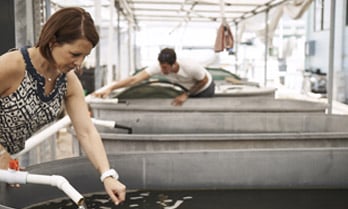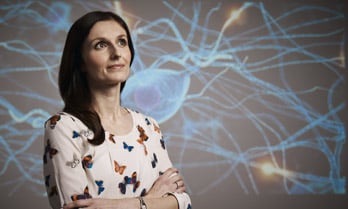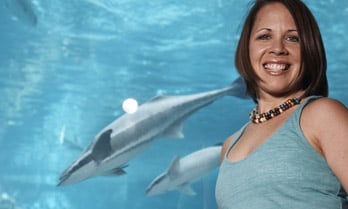







22 January 2025
Harnessing the power of ‘good’ viruses in a post-antibiotic world
As the first person in her immediate family to go through the U.S. College system, Leah has taken a path less travelled to science. To pay for her tuition, Leah took a five-year break from study - working two jobs, including night shift at her local supermarket. Looking back, she's not quite sure how she did it.
Growing up, Leah remembers watching the X-Files and admiring Gillian Anderson's Special Agent 'Scully' combine science and what she describes as a "bad-ass" attitude. While Leah's time in the lab is more terrestial, it's no less extraordinary.
The World Health Organization estimates that by 2050, 10 million deaths each year could be attributed to antimicrobial resistance. The global rise of drug-resistant bacteria necessitates finding alternative strategies to treat complicated bacterial infections.
In this post-antibiotic world, Leah’s focus, in her role as a Research Fellow at the University of Otago in New Zealand, has turned to ‘phages’.
Phages are viruses that only infect bacteria. Their specificity and effectiveness in killing bacteria make them an attractive solution against problematic infections. However, to successfully implement phages as treatments against infections - a process known as ‘phage therapy’ - we need a deeper fundamental understanding of how phages interact with bacteria.
“I’ve always been driven by being the first person on the planet to know what you know. While so much of what we do in science can result in dead-ends, when you make that breakthrough,the results are so rewarding. Through my work, I aim to discover the genetic characteristics that make phages more effective. Identifying these traits will hopefully allow us to pinpoint which natural phages are optimal for therapeutic purposes,” Dr Smith explains.
Because of those early personal struggles in completing her study, Leah also one day hopes to give back to the next generation of researchers - just like L’Oréal and FWIS.